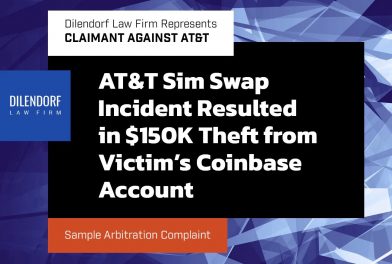Foreign Investment in U.S. Real Estate: Tax & Legal Guide
To discuss your purchase of U.S. real estate and tax-related questions, please contact our team to schedule a consultation. Email: info@dilendorf.com. Phone: 212.457.9797.
 Foreign Investment in US Real Estate: Tax & Legal Guide
Foreign Investment in US Real Estate: Tax & Legal Guide
Foreign investments in U.S. real estate have dramatically increased over the past several years. Also purchase of U.S. distressed real estate properties by foreigners have been on the rise.
While foreigners flock to New York, Florida and other states to acquire real estate to mitigate inflation risk within their portfolios, very few realize the dire tax and legal consequences of investing in U.S. real estate without proper advance planning.
Frequently, problems arise after the property is sold, or after the property has passed through the estate, and the owner/beneficiary is left with a hefty tax bill.
For example, under the current tax law, in 2023, for U.S. citizens, the estate tax exemption will be $12.9 million dollars. It’s double this amount for married U.S. couples, or almost $26M.
At the same time, the federal estate tax exemption for non-residents is only $60,000.
Furthermore, if the foreign client’s investment in U.S. real estate is improperly structured, a combined Federal and State tax rates on gains realized from selling the property could be as high as 55%.
Three major considerations must be taken into account when acquiring U.S. property and devising a real estate holding structure:
- taxation upon disposition of property and repatriation of profits
- taxation upon death
- privacy and reporting requirements.
The appropriate real estate holding structure heavily depends on the client’s goals, future plans, and the underlying reasons for investing in U.S. real estate. With proper advance planning and advice, many concerns over ownership of U.S. real estate can be reduced or even eliminated altogether.
There is no single “best” structure. Whether a non-resident alien should consider purchasing U.S. real estate directly, through a trust or U.S. blocker corporation structure is a fact-specific analysis that must be conducted on a case-by-case basis.
INDIVIDUAL DIRECT OWNERSHIP
A foreign investor may own U.S. real estate directly in his or her own individual name. This is the most primitive and cost-effective form of ownership, yet provides the least long-term benefits and exposes the owner to liability, tax reporting requirements, estate taxes, and Foreign Investment in Real Property Tax Act (“FIRPTA”) withholding tax.
- Privacy: None
- Liability: Personal and Unlimited
- Estate Taxes: Federal Estate Tax 40% + State Tax (depending on the state); no exemption over $60,000
- Sales Taxes: Federal + state income tax rate
- Income Taxes: 30% withholding tax on gross passive income
- Individual direct form of ownership is only chosen by a small percentage of foreign investors.
If the property is rented out, the owner will have to file a U.S. income tax return reporting the U.S. income.
The owner will also be personally liable for any damages that result from that real estate. In addition, investors might be fearful of revealing their wealth for security reasons. An investor’s individual name as an owner of real property will appear in the public records where that real property is located.
Upon sale of real property, the foreign investor will be subject to FIRPTA withholding tax at the rate of 15% of the total sale price (not on gain realized from sale) subject to certain exceptions. FIRPTA tax must be withheld from the purchase price by the buyer and is treated as an advance payment of U.S. taxes.
A foreign person must then file the applicable U.S. income tax return to calculate the amount of tax due. The amount withheld is then credited against the total income tax liability. If the property was held for at least one year, a preferential capital gains rate is applied depending on income, otherwise, the sale is be taxed at ordinary income rates (currently up to 40% ).
Things become more complicated if the property is rented out and, thus, produces income.
Generally, such income is treated as passive investment income and the foreign person is be subject to a flat 30% tax, no deductions are permitted. The worst part is that the payor of the rent is obligated to withhold the 30% tax.
If the foreign person owns several properties and performs substantial and regular management activities, the rental income might be treated as income effectively connected to U.S. trade or business and, thus, will be taxed at ordinary income rates (up to 40%), but the foreign person is allowed certain deductions.
In certain circumstances, it might be advisable to elect taxation at the ordinary income rate to benefit from deductions. The harsh 30% withholding tax may also be mitigated through applicable tax treaties.
Foreign persons are also subject to federal estate tax on property owned in the U.S. when they die. Thus, if one does choose to own U.S. real estate individually, the foreign individual investor will be subject to an estate tax in the event that the investor passes away while owning the U.S. real estate. The current federal estate tax for foreigners is 40% plus the applicable state tax rate (depending on the state).
As of 2020, U.S. citizens are given an individual exemption from the tax up to $11.4 dollars.
However, non-U.S. citizens are not granted the exemption, unless a treaty exists with their country. As a result, property valued above $60,000 is subject to estate tax. With a little careful advance planning, however, it is relatively easy to avoid U.S. estate taxes as discussed in the following sections.
CORPORATE INDIRECT OWNERSHIP
Limited Liability Company
Foreign investors may acquire property in the name of a limited liability company. Limited liability companies are pass-through entities and, thus, the tax consequences are similar to the ones described above.
However, the big difference is that the limited liability company provides the investor with limited personal liability for losses related to the real estate investment – individual foreign investor’s personal assets are not exposed to the liabilities of the investment. This is often the best vehicle for a smaller investor in U.S. real estate.
- Privacy: Limited liability owner’ name does not show up in public records but must file taxes with IRS
- Liability: No Personal Liability + Limited (limited to value of property)
- Estate Taxes: Federal Estate Tax 35%; no exemption over $60,000
- Sales Taxes: Federal + state tax rates (15% of sales price FIRPTA withholding tax)
- Income Taxes: 30% withholding tax on gross passive income
The limited liability company provides for the best income tax treatment and limited liability for the investor’s wealth.
It can also provide the foreign investor with additional privacy protections, as purchasers of property in the U.S. are required to register their ownership with the city and state, and these registries are accessible to the public in online databases. However, the limited liability form of ownership also does not protect the foreign investor from U.S. Federal and State estates taxes upon death.
Since a limited liability company is a pass-through entity, the sales and income tax consequences are essentially the same as if the foreign person owned the property directly.
US Corporation
The use of a U.S. corporation by an individual foreign investor is very limited and, in most cases, not advisable.
That is because ownership of a U.S. corporation that owns real estate does not solve any U.S. estate tax problems and shares of stock in a U.S. corporation are also included in the foreign investor’s estate. This structure also creates an extra tax burden for the foreign investor with increased capital gain rates and the second layer of taxation upon repatriation of profits.
Privacy: Limited; the name does not show up in public records but 50% + owner is disclosed to IRS
Liability: No Personal Liability+ Limited (limited to the value of the property)
Estate Taxes: Shares are included in the estate and taxed
Sales Taxes: No FIRPTA, corporate capital gains rate of + tax rate on dividend distribution income
Taxes: up to 21% corporate rate + tax rate on repatriation of profits to a foreign shareholder
It does provide the investor with the liability shield and eliminates the need for the individual to file an annual U.S. tax return (any person owning more than 50% of the corporation must be disclosed to the U.S. Internal Revenue Service (“IRS”)).
In terms of income taxes, two levels of tax will be imposed on the corporation’s operating income – the regular corporate rate of up to 21% and a flat withholding tax when the profits are repatriated to the foreign shareholder(unless reduced by applicable treaty).
If the property is used as a personal residence, it is not likely to generate income until the property is sold at a gain.
The second level of taxation upon sale can be eliminated when the property is sold in a fully taxable transaction and the sales proceeds are distributed to the shareholder as a liquidating distribution.
Foreign Corporation
As a general rule, it is not a good idea for a foreign investor to use a foreign corporation to invest in U.S. real estate. This is because foreign corporations that invest in U.S. real estate can be subject not only to U.S. corporate income taxes but also to the branch profits tax of 30% — a second tax on the “deemed” distributions of the corporation’s U.S. income to its shareholders even if the dividend was not distributed.
- Privacy: Yes
- Liability: No personal liability
- Estate Taxes: None
- Sales Taxes: FIRPTA, unless stock in a foreign corporation is sold instead of the actual asset
- Income Taxes: corporate tax rate + 30% branch profit tax (combined effective rate up to 55% or more)
The branch-profits tax is essentially a double tax on the corporation’s effectively connected income and is aimed at mimicking the double taxation of dividends from U.S. corporations. Thus, the branch-profits tax is an additional tax of 30% (on top of the regular income tax) imposed on the effectively connected earnings and profits of a foreign corporation that are not reinvested in the corporation’s business.
There are no estate taxes because when the foreign investor dies, the foreign investor has only transferred to his or her heirs’ shares in the foreign corporation and there is no direct interest in U.S. real estate. However, the double taxation and branch profit tax, application of FIRPTA withholding rules and high capital gain normally outweigh any advantages this structure.
US Blocker Structure
Privacy: Yes
Liability: No Personal Liability
Estate Taxes: None
Gift Taxes: None
Capital Gain Tax: Up to 20% Capital Gain Tax + State Capital Gain Taxes, depending on where the property is located
Ordinary Income Taxes: Income taxes may not apply with proper structuring
U.S. Blocker structure allows eliminating estate taxes and FIRPTA withholding requirements with proper planning and execution. This structure affords the owner with both asset protection and privacy.
If the foreign investor establishes a foreign corporation that in turn owns 100% of the U.S. corporation that owns real estate, the foreign investor will be able to avoid any U.S. estate tax completely since nothing in the U.S. is transferred in the event of death. FIRPTA withholding requirements can also be avoided when the real estate is sold because the seller of real estate is a domestic entity.
If the U.S. corporation is willing to wait a statutorily-required 5-year period after the sale of the property, the U.S. corporation can distribute the cash realized from the sale to its foreign shareholder as liquidation proceeds with no tax consequences at all if the liquidation is properly structured.
Leveraged Blocker
Leveraged Blocker is the most complex and expensive structure and is only recommended for large investments in U.S. real estate, involving several investors or a fund. The structure is very similar to US Blocker structure, but, in addition, the foreign person loans part of the investment to the U.S. Corporation, which generates U.S. tax deductions to the corporation.
Because the U.S. Corporation can deduct the interest, this lowers the effective U.S. tax rate. This structure requires extensive planning and involves several complex tax provisions dealing with portfolio interest exemption and income stripping rules.
INVESTMENT STRUCTURES THROUGH APPLICABLE BILATERAL TAX TREATIES
The U.S. maintains bilateral tax treaties with 68 countries.
Under these treaties, residents of foreign countries are taxed at a reduced rate, or are exempt from U.S. taxes on certain items of income they receive from sources, including real estate, within the U.S. The impact of tax treaties can be quite significant for the client’s bottom line, substantially reducing U.S. income and withholding taxes.
For example, some treaties completely eliminate U.S. withholding tax on repatriation of profits (payments of U.S.-source dividends). Others reduce the applicable withholding tax rate to 15%, 10% or 5%.
In addition to repatriation of profits, a foreign person might benefit from leveraging its investment in the U.S. real estate under an applicable bilateral treaty.
For example, the U.S. bilateral tax treaties with United Kingdom, Canada, France, Norway, Germany, Ukraine and several other countries eliminate U.S. withholding tax on payment of interest to a foreign person, regardless of the relationship between the borrower and the lender.
Under the U.S. tax treaty with China, the U.S. tax on interest income earned by Chinese individuals and companies in the U.S. may not exceed 10% subject to certain exceptions.
A handful of treaties even eliminate U.S. withholding tax on contingent interest.
With proper structuring, the tax savings could be very significant allowing effective tax rate reductions of up to 70-80%, making a client’s investment in U.S. real estate much more attractive. In some cases, income taxes can be eliminated completely.
Qualifying for these special Bilateral Tax Treaty-based exemptions requires careful planning.
CONCLUSION
Before making a substantial investment in U.S. real estate, foreign investors should fully consider the U.S. tax consequences of their investment, including those that arise when the property is sold and proceeds are repatriated. We have substantial experience advising individuals, families and investment funds in connection with inbound U.S. transactions, including investments in U.S. real estate.
Tax Disclaimer: The information contained herein is general in nature and based on authorities that are subject to change. We do not guarantee neither the accuracy nor completeness of any information and is not responsible for any errors or omissions, or for results obtained by others as a result of reliance upon such information. We assume no obligation to inform the reader of any changes in tax laws or other factors that could affect the information contained herein. This publication does not, and is not intended to, provide legal, tax or accounting advice, and readers should consult their tax advisors concerning the application of tax laws to their particular situations.
Circular 230 Disclosure: This analysis is not tax advice and is not intended or written to be used, and cannot be used, for purposes of avoiding tax penalties that may be imposed on any taxpayer.
Co-Author of this Article: Rika Khurdayan.
Resources for Foreign Investors in U.S. Real Estate
Foreign Investment in Real Property Tax Act
Trends in Foreign Ownership of U.S. Farmland and Commercial Real Estate
FIRPTA Withholding – Internal Revenue Service
Foreign Investment in U.S. real estate surges 49%
1031 Like-Kind Exchanges for Foreign Investors in U.S. Real Estate
Withholding of Tax on Dispositions of US Real Property
Foreign Investment in Real Property Tax Act (FIRPTA) – IRS Video Portal
ITIN Guidance for Foreign Property Buyers/Seller
Format of Applications for FIRTPA Withholding Certificate
United States Income Tax Treaties – A to Z
Association of Foreign Investors in Real Estate
US Remains No. 1 Choice for Foreign Investment
Advising Foreign Investment in US Real Estate, How to Be A Modern Renaissance Attorney
Tax Structuring of Foreign Investment in U.S. Real Estate with NY Twist














